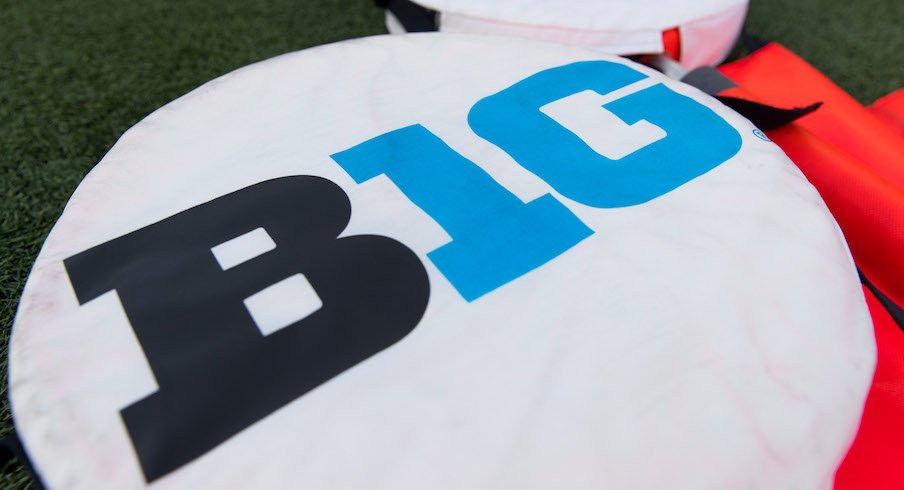The Big Ten’s presidents and chancellors never would have voted to green-light a fall football season without what they view as a foolproof coronavirus testing plan.
“The new medical protocols and standards put into place by the Big Ten Return To Competition Task Force were pivotal in the decision to move forward with sports in the conference,” said Morton Schapiro, Northwestern’s president who’s also the chair of the Big Ten Council of Presidents/Chancellors.
What they came up with is extensive, all-encompassing, rigid and should prevent team-wide COVID-19 outbreaks.
All football players, coaches, trainers and anybody else on the field for all games and practices will begin undergoing daily coronavirus testing on Sept. 30, which marks three-and-a-half weeks before the season starts on Oct. 24. Tests are required to be taken with the results recorded before all games and practices.
Testing will be provided by the conference, said Ohio State athletic director Gene Smith who noted the Big Ten will announce who's producing the tests at some point in the future.
If somebody is positive for COVID-19 via a point-of-contact daily test, they’ll take a polymerase chain reaction test to confirm the result. Provided that returns a positive result as well, the player would be forced to sit out games for at least 21 days following the test. Jim Borchers, Ohio State’s team physician, says the three weeks off of games are due to the desire to have players acclimate back to their teams for a week after spending 14 days away from them. That, of course, could have major effects on the upcoming season.
A team’s coronavirus positivity rate will also be under the conference’s microscope.
Each of the 14 teams will appoint a Chief Infection Officer whose duty it will be to submit COVID-19 testing data every day, including a seven-day rolling average. Those numbers will determine the recommendations for whether or not to continue practicing and playing games.
Two percentages, in particular, will be most important.
- Team positivity rate (number of positive tests divided by total number of tests administered): Green (0-2 percent), Orange (2-5 percent), Red (greater than 5 percent)
- Population positivity rate (number of positive individuals divided by total population at risk): Green (0-3.5 percent), Orange (3.5-7.5 percent), Red (greater than 7.5 percent)
Using those two numbers, the Big Ten will determine if teams can practice and play in games
- Green-Green or Green-Orange: “Team continues with normal practice and competition”
- Orange-Orange or Orange-Red: “Team must proceed with caution and enhance COVID-19 prevention (alter practice and meeting schedule, consider viability of continuing with scheduled competition)”
- Red-Red: “Team must stop regular practice and competition for a minimum of 7 days and reassess metrics until improved”
So, if a team’s positivity rate is greater than 5 percent and if the population positivity rate exceeds 7.5 percent, then it must stop playing and practicing for seven days. In a nine-game season, that would be a devastating scenario for any team, forcing it to miss at least one game – and likely more than just one.
Individual players who test positive for COVID-19 will need to undergo cardiac testing, as well, which includes labs and biomarkers, ECG, echocardiogram and cardiac MRI. Afterward, they’ll have to get cleared by a university-dictated cardiologist “for the primary purpose of cardiac clearance” before returning to action. A cardiac registry designed to “examine the effects on COVID-19 positive student-athletes” will be created, too.
Contact tracing will be standardized, the Big Ten said. The conference will also implement recommendations for game day operations and has created – but not publicly released – minimum standards for road travel.
All athletes involved in fall sports will have access to coronavirus testing, commissioner Kevin Warren said on Wednesday's press conference.


